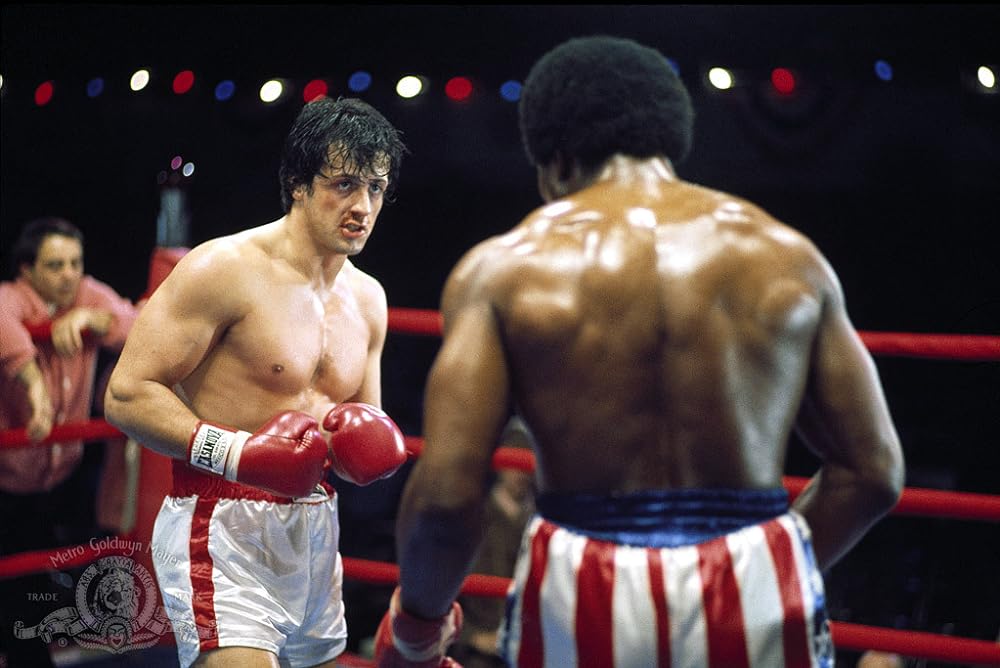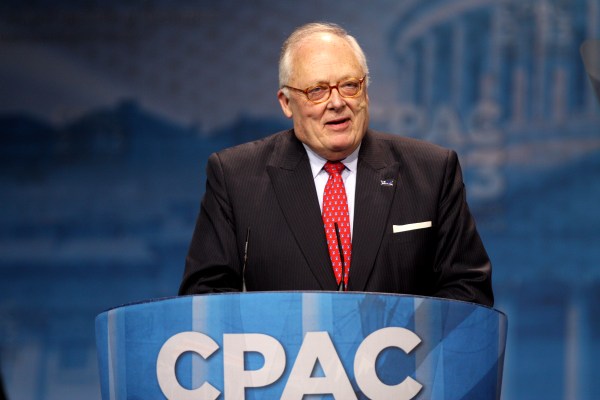I have four little boys, so I think a great deal about the kind of example I’m setting and the things I’d like to teach them. Right now it’s about not throwing mom’s homemade applesauce at the dachshund, but one of these days we’ll get around to some of the big issues. For some reason, one of them is on my mind today:
Rocky loses.
There’s some kind of “Mandela effect” thing going on with the plot of Sylvester Stallone’s 1976 masterpiece, a perfect, moody little film that has almost nothing in common with the sports juggernaut franchise it inspired. (Or, rather, had almost nothing in common with those films, until the recent Creed and Creed II.) Some of those later films were pretty good (don’t sleep on Rocky XXXVIII), but they were mostly more conventional sports movies.
The original Rocky is something different, but it has sunk so deep into the cultural bloodstream that the icon has to some extent supplanted the thing itself. On more than one occasion, I have heard somebody talking about the film clearly under the impression that Rocky Balboa, the hardworking underdog, trains hard, beats his hands bloody on some sides of beef, and then defeats sneering champion Apollo Creed in the big fight. But that isn’t what happens at all. Rocky is treated with contempt and condescension, written off as a joke opponent who has no business being in the ring with the heavyweight champion. Then he gets beaten to a pulp and loses the big fight.
And it is glorious.
Rocky’s vindication doesn’t come from victory; it comes from showing up, doing the work, going the distance, and enduring everything Creed throws at him. He demonstrates an important and often overlooked principle: You cannot humiliate a man who declines to be humiliated. You can beat him bloody, defeat him, deny him the fruits of victory—but he decides how to play his part.
It was Muhammad Ali who strutted around proclaiming, “I AM THE GREATEST!” Rocky can make no such boast: Beaten to the point of near-blindness and disfigurement, in the end he thinks of his friends and of the woman he loves. His victory cry is the anguished and exhausted: “Yo, Adrian!” (As with so many actors in Rocky, it is impossible to think of Adrian as anyone other than Talia Shire. But Susan Sarandon auditioned for the role, and was rejected on the grounds that she was too pretty.) Rocky doesn’t beat Apollo Creed; he masters himself and, in doing so, honors his family and his friends. Rocky’s friends are a pretty motley bunch—awkward, unattractive, failures in different ways, accents so thick that parts of the film practically need subtitles—but that friendship is the real subject of the film.
If you don’t know the real-life story of how Rocky got made, it’s worth appreciating. As hard as it is to believe, there was a time in American cinema when Sylvester Stallone was not a big deal. He was nobody when he wrote the Rocky script in three days after being inspired by Chuck Wepner’s surprising 15-round performance against Ali in 1975. Everybody had expected Wepner to go down ignominiously early in the fight, but he held on. (Unlike the fictitious Rocky, who was never knocked out, Wepner lost in a 15th-round TKO.) Everybody loved the Rocky script, and producers immediately started dreaming about making the film … with Burt Reynolds or Robert Redford in the lead. Stallone, who was not exactly independently wealthy, turned down some substantial cash offers and insisted that the film be made only with him as the star and—this part is sometimes underappreciated—the principal writer.
Stallone was fortunate to be friends with Henry Winkler, who at the time loomed large in American pop culture as the star of Happy Days, and Rocky was shepherded through to production by the Fonz himself. They kept the budget low—right around $1 million—to make the film they wanted without having to go through too much studio greenlighting. In a way, Stallone’s success as a filmmaker paralleled Rocky’s career in the ring. He held out when the people in charge thought he didn’t have it in him to be in the big show, did things the hard way, and persevered. But unlike Rocky, Stallone won in his first outing: Rocky won Best Picture at the Academy Awards that year, and it was nominated for a total of 10 Oscars, winning three. That’s what Stallone got for not taking the six-figure offer to sell Rocky to somebody who was going to have Burt Reynolds running around Philadelphia in his shorts.
But Stallone’s win and Rocky’s loss both were testaments to the same virtue: perseverance. And that is a virtue available to those of us who are not heroes: The guy who gets up every day and goes to a modest job and does good work because good work is the only kind of work worth the time is in the ring, too. Time and circumstance didn’t ask him to storm Omaha Beach. All anybody can ask is that he perseveres in the life he has.
It is important to the story that Rocky loses, but equally important is why he loses: Rocky loses to Apollo Creed because Apollo Creed is the better fighter. There isn’t any suggestion that Rocky was cheated or that he was treated unfairly or that the contest was—how do they put it?—“rigged.” (Part of the Rocky lore is that there is a secret final fight between Rocky and Creed to establish once and for all who is the superior boxer—and Creed wins, again.) Rocky wasn’t some overlooked gem. (The character gets shined up in the sequels, of course.) There is a reason Rocky came into the match as an underdog. He’s a small-time criminal (a collector for a mafia loan shark), an unglamorous man living a lonely life in an unglamorous city (the film’s urban geography was famously screwy, but few people have ever seen Philadelphia with as much sympathy and clarity as Rocky cinematographer James Crabe). The great transformative opportunity of his life was given to him by people who thought, not without good reason, that he was a chump, a forgettable piece of meat fit only to be abused for spectacle.
So Rocky’s stated ambition is modest: “All I wanted to prove was I weren’t no bum.” It’s a small thing. And it’s not a small thing.







Please note that we at The Dispatch hold ourselves, our work, and our commenters to a higher standard than other places on the internet. We welcome comments that foster genuine debate or discussion—including comments critical of us or our work—but responses that include ad hominem attacks on fellow Dispatch members or are intended to stoke fear and anger may be moderated.
With your membership, you only have the ability to comment on The Morning Dispatch articles. Consider upgrading to join the conversation everywhere.